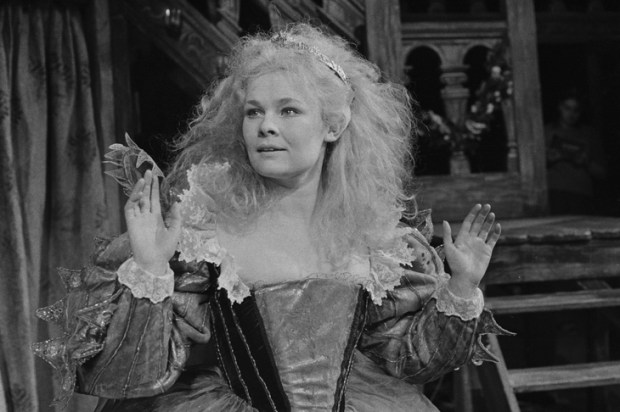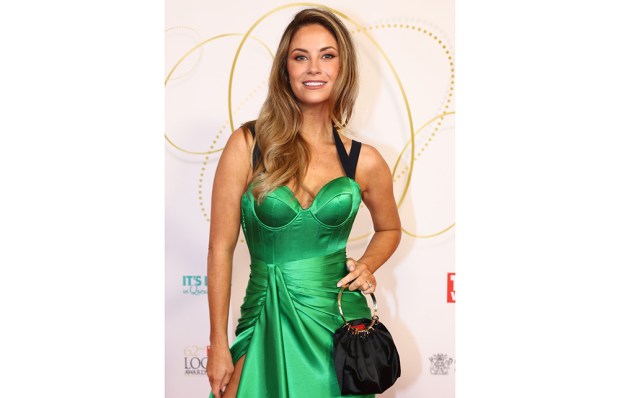In a week dominated by the death of the Queen it’s a strange thing that Jean-Luc Godard, the man who seemed to transform cinema in the 1960s, should have died in Switzerland (it seems to have been his choice) at the age of 91. Doesn’t it say something for the French, with all their faults, that Emmanuel Macron said in a tweet, ‘We’ve lost a national treasure, the eye of a genius,’ and went on to praise Godard’s masterliness and the way he was the most iconoclastic of the great New Wave film directors that included Truffaut, Chabrol and Rivette. He was certainly that, the James Joyce figure of post-war cinema even if you think he fell victim to the kind of infinite self-involvement and vaunted privacy that Finnegans Wake might be charged with if the author were not such a supreme master of the music of words and the multiple jokes a polylingual pun could contain when an Irish-accented comedy of language subsumed the world.
But early Godard is something everyone should experience for the sheer satisfaction of discovering that film can be an experimental medium, that like the towering masterpieces of literary and pictorial modernism decades earlier it could make things strange by making them new: the jump cuts, the discontinuities, the sense of endless only half-jokey improvisation. Terence Davies, who has made masterpieces of his own like his film with Gillian Anderson of Edith Wharton’s The House of Mirth, said, ‘As Proust and Joyce are to the novel, so Godard is to the cinema. They [the films] still cast their power over new writers and directors…. So, ladies and gentlemen, hats off and stand for the passing of a genius.’
Martin Scorsese said, ‘From Breathless on, Godard redefined the very idea of what a movie was and where it could go,’ and said ‘You had the impression that he was actually taking apart his own movie and rebuilding it before his eyes.’
That’s part of the trick, isn’t it, as well as the trickery of the modernist caper? I remember many years ago Michael Heyward, now the eminent publisher of Text, said as a very young man in the context of his enthusiasm for that great Northumbrian poet Basil Bunting who was also a disciple of Ezra Pound that poetry should project the excitement of its own making. Well, should it? The Wasteland does but Four Quartets doesn’t. Ezra Pound certainly does and so does Godard.
Who could not be grateful for a youth that automatically exposed a young culture vulture to films like Breathless, and Vivre ça Vie, Contempt and Two Or Three Things I Know About Her and Bande à Part and Pierre le fou though the memory of these films can be dreamlike and indistinct. You can make a case that late Godard is not only a bit of a nightmare – Mike Leigh talked about his reservations about ‘the director’s later eccentricities’ but that late Godard starts earlier than a lot of people think. There’s the arid grandeur of his science-fiction masterwork Alphaville and then there’s Weekend with its wacko vaunted leftism. A lot of the young film warriors today seem to imagine that the politics of Weekend are, in their expression, parodic and ironic and post-modern whereas anyone who was there in the vicinity of the barricades will recognise the craziness of the new leftism Godard articulates as serious.
Where does all this leave us with this giant of a filmmaker who can seem to have gone off on a frolic of his own? No one but Godard could have made Sympathy for the Devil with the Rolling Stones, no one but Godard – including his contemporary Truffault with his very accessible and humane masterpieces like Shoot the Pianist and Jules et Jim – could have taken film by the scruff of the neck and made available to a spoilt suburbanite baby boomer generation a vision so radical and wild and strange. A vision at least as original as the Bob Dylan of the same period who made folk and then rock music seem like the medium for an unheard-of poetry.
I once said in a moment of folly to my now-dead friend Pierre Rissient, who used to come to this country to select films for Cannes and was a great admirer of Jane Campion, but had a passionate love of literature and the kind of work Heyward and I published in the literary magazine Scripsi, that I had just seen again at Melbourne’s Astor Cinema a double-bill of two famous French films, Godard’s Breathless and Bresson’s Diary of a Country Priest and that I thought the Bresson was immeasurably superior.
Pierre was a man who knew the world of cinema like the back of his hand. We were once lucky enough to publish the poet and New Yorker art critic Peter Schjeldahl on the subject of Clint Eastwood’s then new and marvellous film Unforgiven (for which he subsequently won a swag of Oscars) and when I gave it to Pierre he said, ‘I will show it to Clint.’ He was mild enough about my brashly dismissive remark about Breathless. He just said, ‘Ah. I did the edit on Breathless.’
There are moments when negative criticism is beside the point. The film of Godard’s I’d most like to see again is Contempt, the one with Brigitte Bardot where that great film-maker Fritz Lang plays a film director at work on a traditional literary film of The Odyssey with Jack Palance as a producer.
Lang, in his German heyday, made a silent and non-Wagnerian film of the Niebelungenlied. It’s good to see that Melbourne Opera is doing a recital of Wagner’s Siegfried with the marvellous Warwick Fyfe.
It’s also heartening among the massive lament that’s met the Queen’s death to reflect that King Charles III takes the crown with his beloved Queen Camilla by his side. Like him she is a great reader. The King is a keen enthusiast for the audio recordings of Miriam Margoyles.
The Queen found her poetry in horses. She talked about horses with Bob Hawke, she talked about horses with Lucien Freud.
Got something to add? Join the discussion and comment below.
You might disagree with half of it, but you’ll enjoy reading all of it. Try your first month for free, then just $2 a week for the remainder of your first year.













